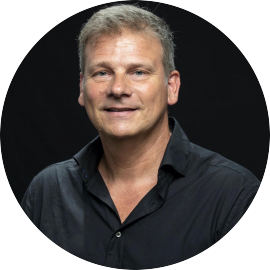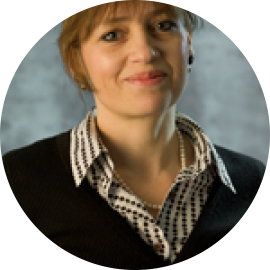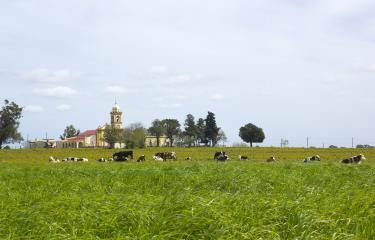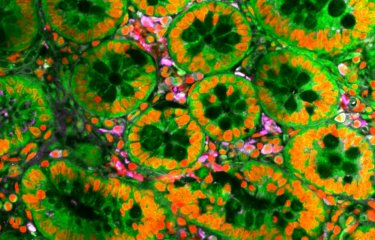Since they were launched in 2007, European Research Council (ERC) grants have become a mark of scientific excellence. Three new ERC Synergy Grants have recently been awarded for international projects involving scientists working on the Institut Pasteur campus.
The ERC (European Research Council) funds exploratory research projects at the frontiers of knowledge in all fields of science and technology. The only selection criterion is scientific excellence. The ERC helps attract the best international researchers to Europe and above all to develop Europe's scientific competitiveness, as we explained in our article ERC grants: scientific excellence supported by Europe in 2017. It has become the benchmark for excellence in European science.
The ERC also encourages scientific employment by enabling grant holders to recruit their research teams and offer doctoral grants, thereby playing a part in training a new generation of outstanding scientists.
Winners of 2022 ERC Synergy Grants on the Institut Pasteur campus
Most of the ERC grants for 2022 have not yet been announced, but the winning proposals in the ERC Synergy Grants call were revealed in October. Each of these outstanding projects, which will receive a maximum of €10 million over a period of up to six years, is led by a group of two to four principal investigators. The funding obtained will enable each team to jointly develop ambitious research at the frontiers of knowledge that addresses questions that could not be resolved by individual researchers. Of the 29 projects selected for funding this year (out of nearly 360 proposals submitted), three will involve research conducted at the Institut Pasteur.
-
DECOLeishRN project (Decoding epistatic genome/RNome interactions in eukaryotic fitness gain using Leishmania parasites as a unique model system)
Winners: Gerald Spaeth, Director of the Department of Parasites and Insect Vectors and Head of the Molecular Parasitology and Signaling Unit at the Institut Pasteur, Prof. Shulamit Michaeli (Bar-Ilan University, Israel) and Prof. Yitzhak Pilpel (Weizmann Institute of Science, Israel).
Summary: This research project will study the parasite Leishmania as a model system with the aim of elucidating the biological mechanism that can mitigate the toxic effects of genome instability while promoting the beneficial effects, thereby resolving a major question in infection biology and cancer.

Read the summary of the DECOLeishRN project
-
DRIMMS project (Lipid droplets as innate immunity hubs)
Winners: Caroline Demangel, Head of the Immunobiology and Therapy Unit at the Institut Pasteur, Albert Pol (Institut d'Investigacions Biomèdiques, Spain) and Robert G. Parton (Institute for Molecular Bioscience, University of Queensland, Australia).
Summary: The three teams will focus on lipid droplets (LDs), intracellular organelles that regulate the storage of lipids, and more specifically on their role in fighting microbial infection.

Read the summary of the DRIMMS project
-
PEPS project (PErPetuating Stemness: From single-cell analysis to mechanistic spatio-temporal models of neural stem cell dynamics)
Winners: Laure Bally-Cuif, CNRS Director of Research, Director of the Department of Developmental and Stem Cell Biology and Head of the Zebrafish Neurogenetics Unit at the Institut Pasteur, Ana Martin-Villalba (German Cancer Research Center (DKFZ), Germany), Anna Marciniak-Czochra (Institute of Applied Mathematics, University of Heidelberg, Germany) and Simon Anders (BioQuant, Germany).
Summary: The PEPS project will focus on the stem cells in adult brains: how can they both generate neurons and maintain themselves in sufficient numbers to guarantee their long-term function? To address this complex question, the four teams involved in the project will combine their expertise in in vivo experimental models, biostatistical analysis and mathematical modeling.

Read the summary of the PEPS project
Find out more about the ERC Synergy Grant
2022 ERC Synergy Grants: France on the podium
Fifteen of the 29 proposals selected following the 2022 ERC Synergy Grant call involve at least one researcher affiliated with a French institution, and 22 of the winning PIs (principal investigators) are based in France, just behind Germany (23) and ahead of Israel (7). The host institutions of the 22 PIs in France are the CNRS (10), Inserm (2), the Institut Pasteur (2), the École Pratique des Hautes Études (2), the École Polytechnique (1), the École Centrale de Nantes (1), the CEA (1), IFP Énergies Nouvelles (1), Université Toulouse III-Paul Sabatier (1) and Université Paris Dauphine (1).
"Almost 360 proposals were submitted in this first ERC Synergy Grant call under the EU's Horizon Europe program," said the European Research Council.
- 29 winning projects, two led directly at the Institut Pasteur and a third led by the CNRS and involving the Institut Pasteur
- 105 researchers
- 19 countries
- €295 million in total for the 29 projects selected for funding in 2022.
Major ERC funding schemes
The European Research Council offers six types of funding.
Individual grants aimed at young researchers in two categories:
- Starting Grants, for early-career researchers with 2 to 7 years' postdoctoral experience who show strong potential in their research field;
- Consolidator Grants, for accomplished researchers with 7 to 12 years' postdoctoral experience, with the aim of giving new impetus to projects with strong potential.
Individual grants aimed at established researchers: Advanced Grants, for outstanding research leaders with a recognized record of research achievements and more than 12 years' postdoctoral experience.
Additional Proof of Concept grants enable researchers who have already received ERC funding to explore the innovation potential of promising results generated by their project.
Collaborative Synergy Grants involving two to four researchers.
The Public Engagement with Research Award, launched in 2019, is designed to recognize the efforts of ERC-funded scientists to communicate their research to the general public.
70 ERC grant winners in 15 years at the Institut Pasteur
Several ERC grant recipients have come from the Institut Pasteur – a total of 71 ERC grants in the various categories have been awarded to talented Institut Pasteur scientists since 2007. These include 17 grants awarded to scientists from external research organizations (OREX) whose team is hosted on the Institut Pasteur campus.
In 2021, the Institut Pasteur received three ERC grants:
- ERC Advanced Grant for the project STENIPATH – Stem and niche cell dynamics in normal and pathological conditions
Shahragim Tajbakhsh (Stem Cells and Development Unit) - ERC Starting Grant for the project EvoMorphoCell – From cell shape to organism shape: the cellular basis for the evolutionary origin of animal morphogenesis
Thibaut Brunet (Evolutionary Cell Biology and Evolution of Morphogenesis five-year group (G5) - ERC Consolidator Grant for the project crInSitu – In situ genetic perturbation of gut bacteria with engineered phage vectors and CRISPR
David Bikard (Synthetic Biology Unit)
Each year, all our grant winners are announced in the Institut Pasteur Annual Report.





